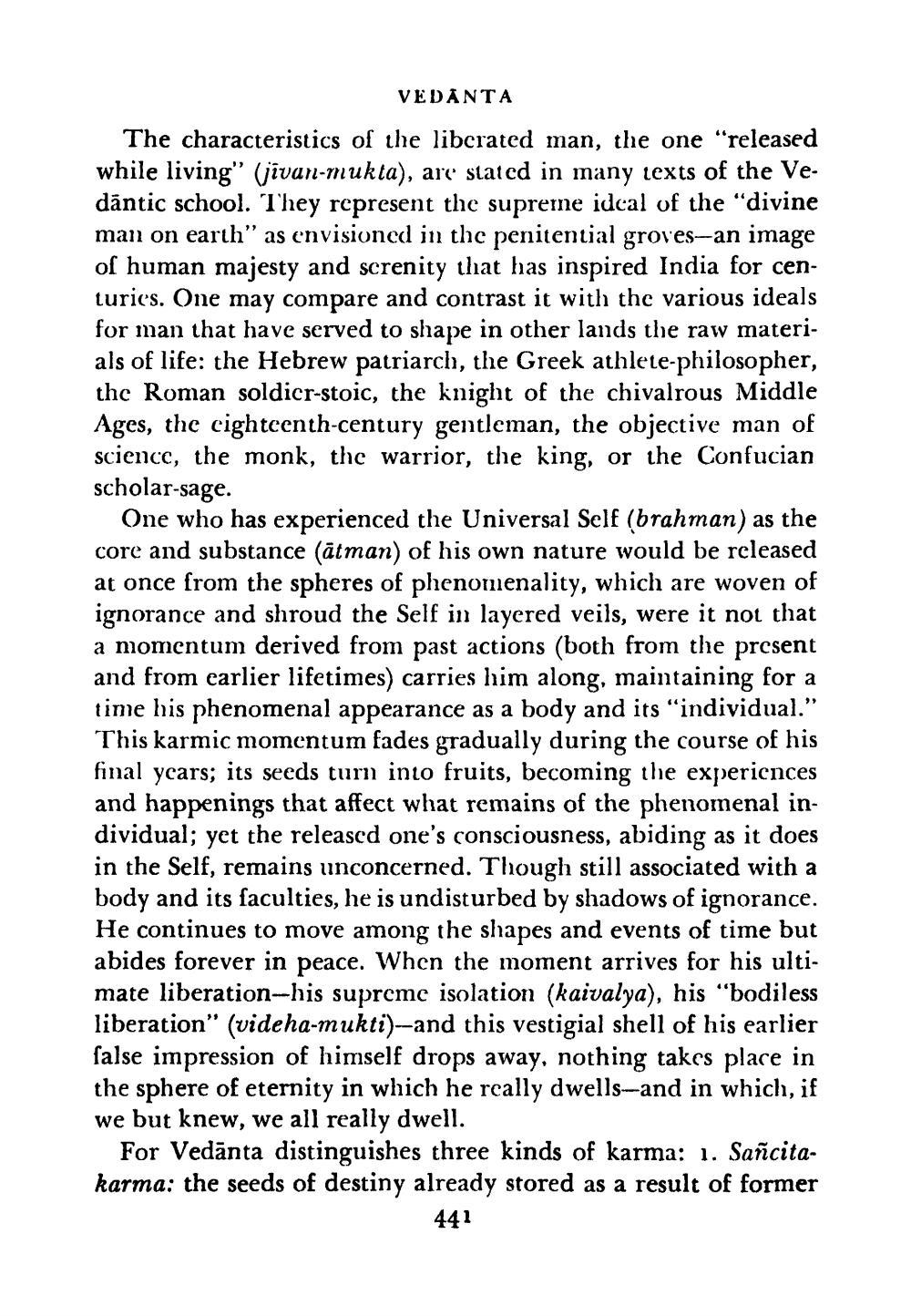________________
VEDANTA
The characteristics of the libcrated man, the one “released while living" (jivan-mukta), are stated in many texts of the Vedāntic school. They represent the supreme idcal of the "divine man on earth" as envisioned in the penitential groves-an image of human majesty and screnity that has inspired India for centuries. One may compare and contrast it with the various ideals for man that have served to shape in other lands the raw materials of life: the Hebrew patriarch, the Greek athlete-philosopher, the Roman soldicr-stoic, the knight of the chivalrous Middle Ages, the cightcenth-century gentleman, the objective man of science, the monk, the warrior, the king, or the Confucian scholar-sage.
One who has experienced the Universal Self (brahman) as the core and substance (atman) of his own nature would be released at once from the spheres of phenomenality, which are woven of ignorance and shroud the Self in layered veils, were it not that a momcntum derived from past actions (both from the present and from earlier lifetimes) carries him along, maintaining for a time his phenomenal appearance as a body and its “individual." This karmic momentum fades gradually during the course of his final years; its seeds turn into fruits, becoming the experiences and happenings that affect what remains of the phenomenal individual; yet the releascd one's consciousness, abiding as it does in the Self, remains unconcerned. Though still associated with a body and its faculties, he is undisturbed by shadows of ignorance. He continues to move among the shapes and events of time but abides forever in peace. When the moment arrives for his ultimate liberation-his supreme isolation (kaivalya), his "bodiless liberation" (videha-mukti)--and this vestigial shell of his earlier false impression of himself drops away, nothing takes place in the sphere of eternity in which he rcally dwells-and in which, if we but knew, we all really dwell.
For Vedānta distinguishes three kinds of karma: 1. Sañcitakarma: the seeds of destiny already stored as a result of former
441




